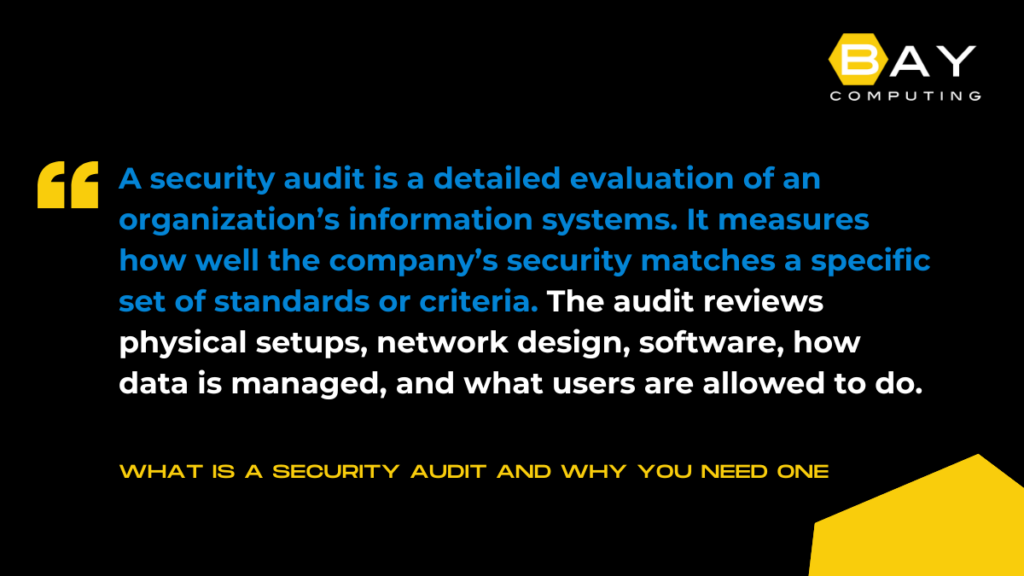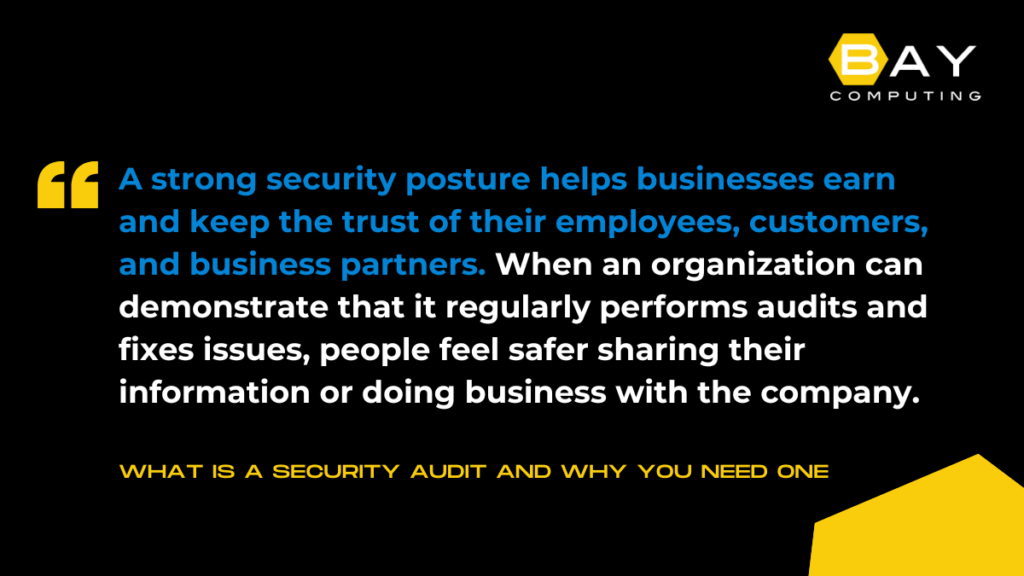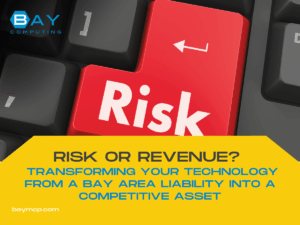What Is a Security Audit and Why You Need One
A security audit is a careful check of an organization’s digital systems, processes, and rules to make sure they are protected against cyber threats. These checks find weaknesses and show if there are gaps that could let hackers in. By looking at how secure a company is, security audits help to lower risks and protect valuable information.
Often, businesses do not realize how quickly threats change and how attackers can find new ways through weak spots. Regular security audits give companies a clear understanding of their readiness and help them keep up with changing cyber threats. To stay safe, every organization that deals with sensitive data should learn why security audits are necessary and how they work.
What Is a Security Audit?
A security audit checks if a company’s IT systems, networks, and processes are properly protected. It uses set rules and steps to find weaknesses and make sure data and systems are safe from threats.
Definition and Key Components

A security audit is a detailed evaluation of an organization’s information systems. It measures how well the company’s security matches a specific set of standards or criteria. The audit reviews physical setups, network design, software, how data is managed, and what users are allowed to do.
Key components of a security audit include:
- Assessment of policies and procedures
- Review of physical and digital security controls
- Testing of network and application defenses
- Analysis of data handling practices
These parts help auditors find gaps that may allow unauthorized access or data loss. A complete security audit looks at everything from the locks on server rooms to firewall settings and password policies. It can also check if the company meets industry compliance requirements.
Types of Security Audits
There are several types of security audits, and each has its focus:
- Internal audits: Done by the organization’s own staff.
- External audits: Performed by outside experts.
- Compliance audits: Check if specific laws or standards are followed, such as ISO 27001 or SOC 2.
- IT and network audits: Focus on the technology and data flow.
- Cybersecurity audits: Center on risks from hacking or cyberattacks.
Each audit finds different issues. For example, a compliance audit might highlight missing legal steps, while a cybersecurity audit looks for vulnerabilities in software or hardware. Organizations may use one or more audit types each year depending on their needs.
Security Audit Methodologies
A security audit usually follows a step-by-step process. It starts with planning, where the scope and goals are set. The audit team gathers information about systems and processes in the organization. Next, they review and test current security controls, like firewalls or access settings.
Common steps in a security audit process:
- Define goals and scope
- Gather and review documents
- Test security controls
- Identify weaknesses and risks
- Report findings and suggest fixes
Auditors might use automated scanning tools, interviews, and manual checks during the process. The goal is to uncover real weaknesses and offer ways to fix them, making the whole system safer.
Why You Need a Security Audit

A security audit helps organizations prevent data breaches, avoid fines, and strengthen trust with customers and partners. It offers a systematic way to address weaknesses before they become real problems.
Protecting Sensitive Data
Sensitive data, such as customer records, financial information, and employee details, must be kept safe from hackers or unauthorized access. Security audits provide a way to review and test how well data is protected throughout the company.
During an audit, data storage systems, backup procedures, and user access controls are examined. Weak passwords, outdated software, or improper permissions can make it easy for attackers to reach confidential information.
A regular audit helps confirm that information is only available to those who truly need it. This process supports better data privacy and reduces the risk of harmful leaks and identity theft.
Compliance With Regulations
Governments and industries have strict rules about how organizations handle data. Failing to comply with laws such as GDPR, HIPAA, or PCI-DSS can lead to large fines and legal actions.
A security audit checks that all policies and practices meet required standards. Audits review physical and digital security procedures, as well as record-keeping, to make sure they match what the law expects.
Staying compliant is not only a legal responsibility but also proves to clients and partners that the company is trustworthy. Regular audits help track changes in the law and keep procedures up to date.
Identifying Vulnerabilities
Attacks and threats keep changing over time, making it important for organizations to constantly review their systems. Security audits are designed to discover weaknesses—like software bugs or gaps in firewall settings—before attackers find them.
Typical audits include steps such as:
- Mapping out the network and assets
- Testing system settings and configurations
- Reviewing logs of security events
- Simulating attacks
Finding these problems early allows the company to fix or improve defenses. Scheduled audits are a proactive measure, leading to fewer surprises from cyberattacks or accidental mistakes.
Enhancing Organizational Reputation

A strong security posture helps businesses earn and keep the trust of their employees, customers, and business partners. When an organization can demonstrate that it regularly performs audits and fixes issues, people feel safer sharing their information or doing business with the company.
Transparent security practices make it easier to respond to questions about privacy or data use. Companies with a reputation for safety attract more clients, win more contracts, and protect their brand value.
A single data breach can cause lasting damage to how a business is viewed. Regular security audits show that the company takes threats seriously and works to prevent problems before they harm anyone.
Ready to Protect Your Business? Start with a Security Audit Today
Protect your business before threats strike. Bay Computing’s expert security audits identify vulnerabilities, ensure compliance with standards like HIPAA and PCI-DSS, and help you stay ahead of evolving cyber risks. Gain peace of mind with clear, actionable insights from a trusted Bay Area IT partner. Contact us and schedule your security assessment today.




